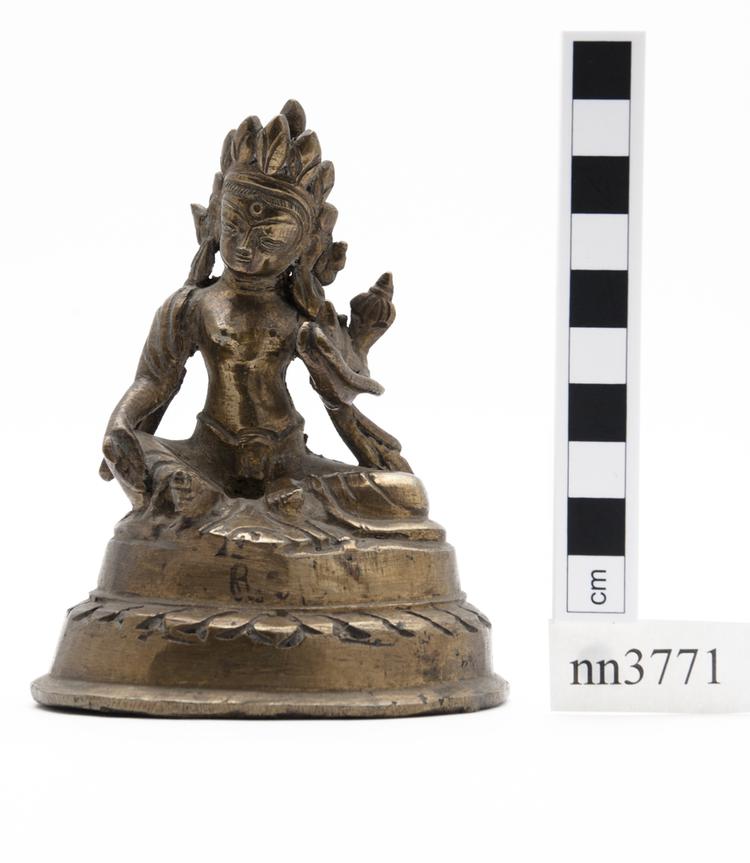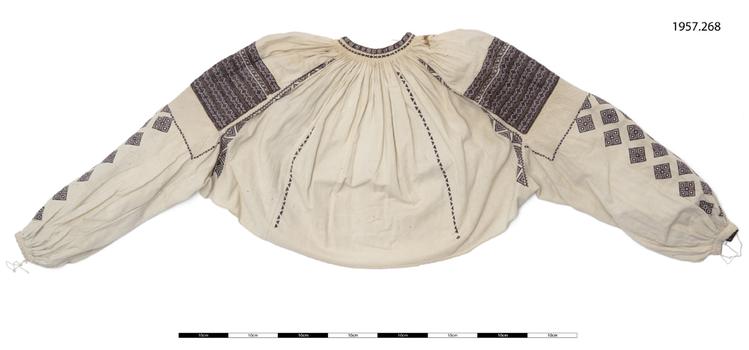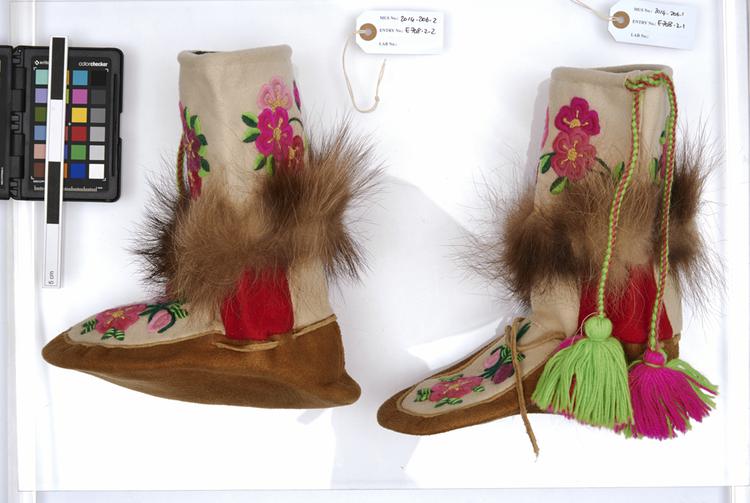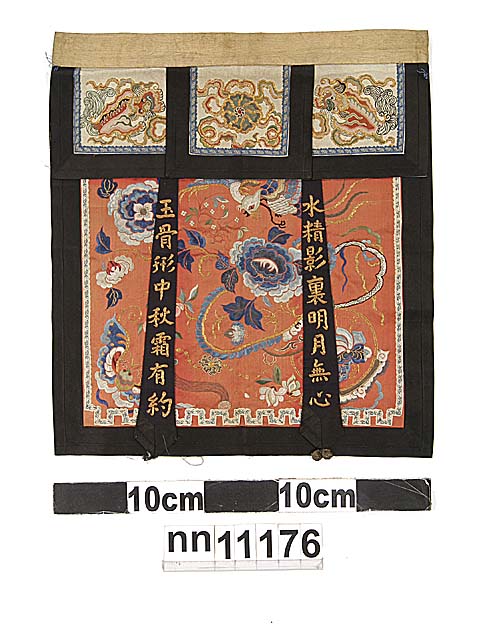
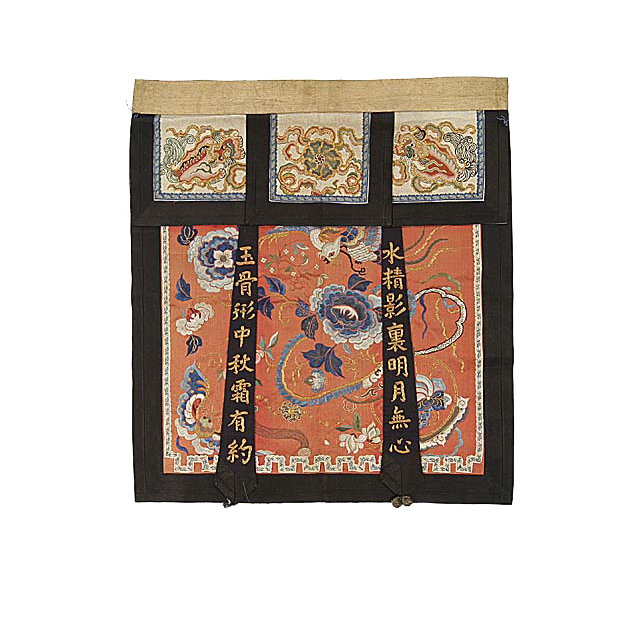
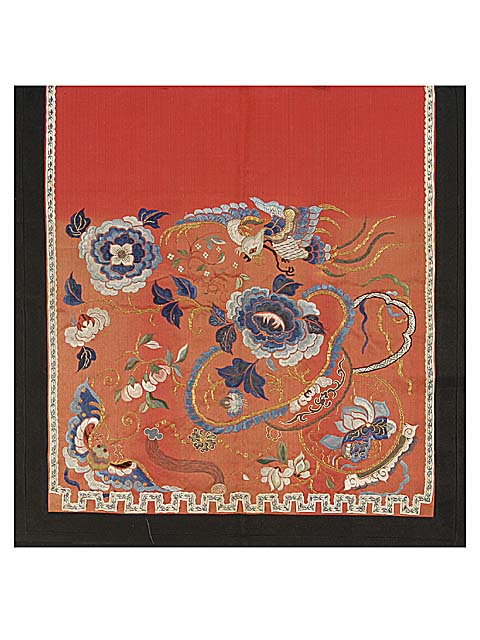
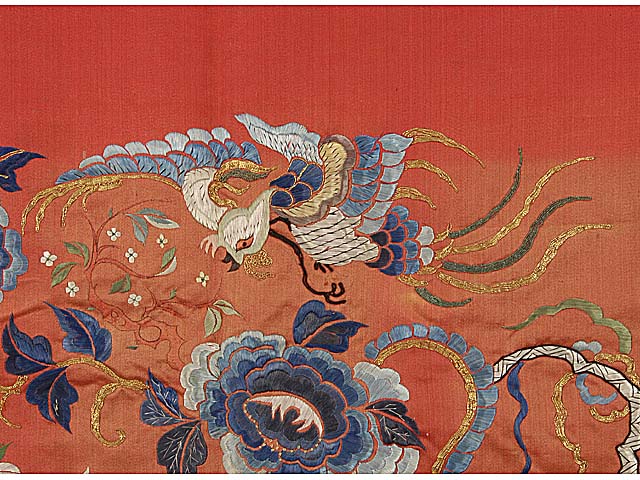

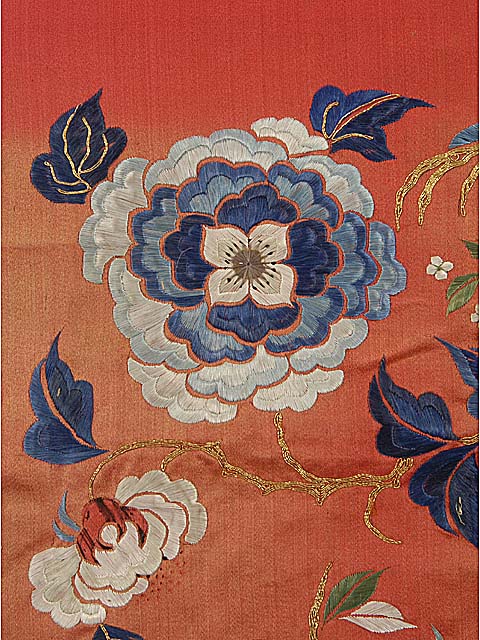

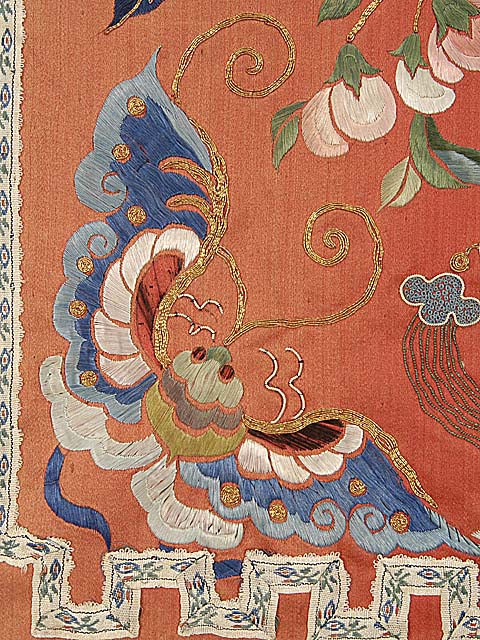
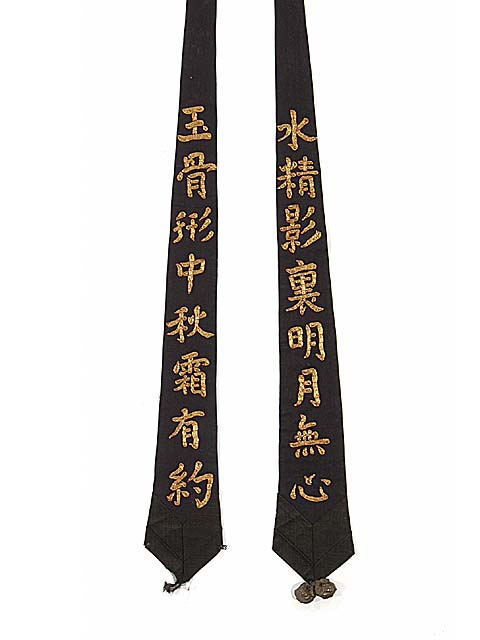

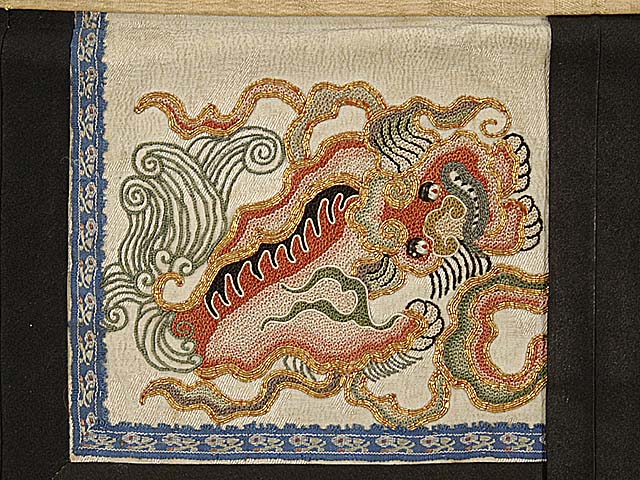
A square-shaped silk table frontal or altar cloth with a flap. The main panel has a large bloom in the centre, probably a peony, and other flower motifs, a butterfly in the bottom left corner and a phoenix at the top. The imagery is worked in satin stitch, Peking knot stitch and couched gold-coloured metal-wrapped thread. One area is unfinished. Multi-coloured silk threads are used on a red satin ground.
Two black satin bands hang over the main image: each has poems in the form of eight different Chinese characters worked in gold thread. The left part of the couplet 玉骨形中秋霜有約 roughly translates as: 'in the shape of jadeite bones, we should remember to see the frost in autumn'; the right hand one, which has two metal bells attached, reads 水精影裡明月無心. This roughly translates as: 'in the reflection of the clear water, there is a bright moon hanging idly in the sky'. The couplet conveys an attitude of respect for elderly people and clarity or purity in inner reflection.
There is an applied floral braid in continuous supplementary warp on three sides. The flap has three square panels. The centre one depicts a peony, with the outer squares depicting two animals, probably Buddhist lions. Both sections are lined with blue silk damask. A separate damask fabric with a different weave is stitched along the top and forms a sleeve. The reverse shows something of its original yellow colour.
The poem on the two black satin bands hanging over the main image read:玉骨形ä¸ç§‹éœœæœ‰ç´„,水精影裡明月無心 ‘yu gu xing zhong qiu shuang you yue, shui jing ying li ming yue wu xin’. It is a couplet from an anonymous poet. The poem briefly means ’in the shape of the jadeite bones, we should remember to see the frost in autumn; in the reflection of the clear water, there is a bright moon hanging idly in the sky.’ The Chinese often use ‘jadeite’ to describe the body or bones of elderly people to show their respect for them, which also means that those people are precious and special. The frost in autumn has various meaning in Chinese poems. It might refers to the white hair of an elderly person or someone that has too many things to consider. It also symbolises grace and severity in some context, but here, it probably means the long yearning for his/her ancestors. As for the other sentence, Chinese poets like to use ‘clear water’ and ‘bright moon’ to show their pure heart. Here, water and moon are mentioned in order to emphasise a self-reflection process. The poet’s (or the owner of this cloth) mind is as clear and pure as the reflection of the bright moon on the surface of the clear water. Wu Ni Yen, February 2015.





